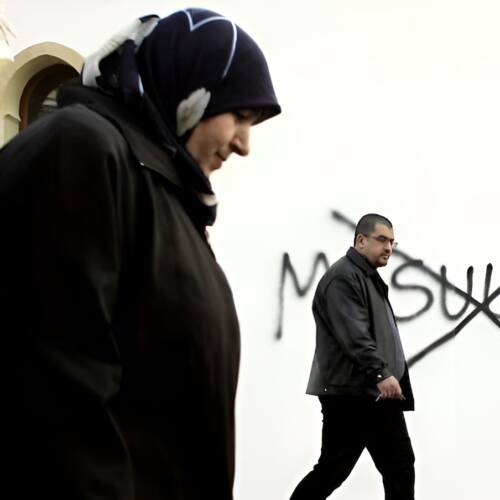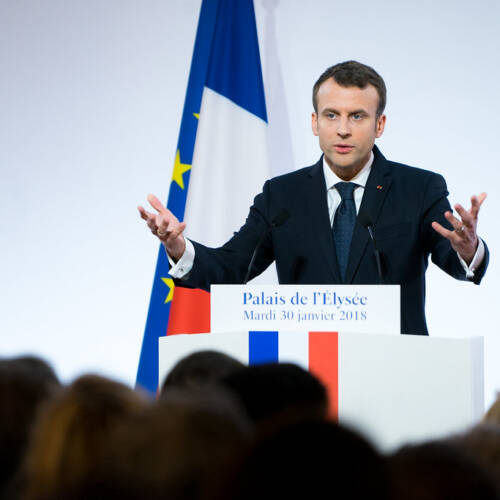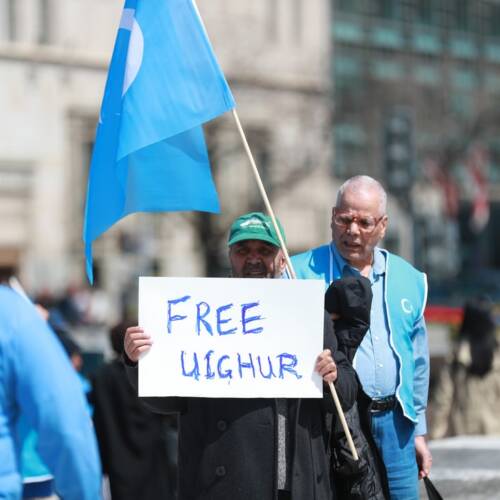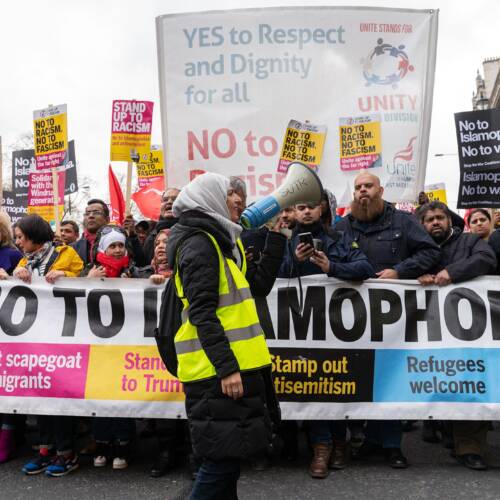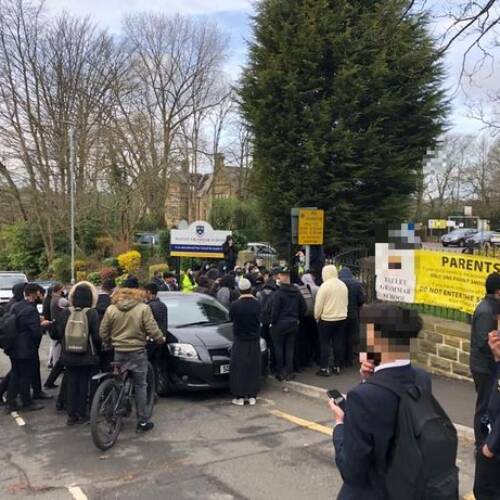
Anti-Muslim Rhetoric in Right-Wing Media Rising In the Wake Of the Coronavirus Outbreak
16 Apr 2020A series of opinion pieces in major UK news outlets, predicting that there will be a spike of COVID-19 cases among the UK’s Muslim population, has raised fears that the on-going coronavirus crisis is being used by far-right right groups to fuel Islamophobia. The publishing of the opinion pieces came amidst rising number of unsubstantiated claims within far-right social media and news outlets that Muslims in the UK are flouting lockdown in order to gather for prayers or are even deliberately spreading the virus.
Counter-terrorism police in the UK has announced that it is investigating cases of far-right groups deliberately stoking anti-Muslim sentiments at the back of the outbreak. Activist groups have also been working to debunk as many cases of misinformation as possible.
Scare-Mongering in Mainstream Outlets
On Sunday, The Times newspaper published a report, suggesting that COVID-19 cases in the UK could experience a spike as a result of Muslims gathering for Ramadan. The report, which has since been republished in other outlets, cited an NHS official named Dr. Adnan Sharif. While it did not fully blame Muslims or the wider Black, Asian and Middle Eastern (BAME) minorities in the UK, it nevertheless expressed fears about how Muslim gatherings could worsen the outbreak.
On the same day, Andrew Pierce, a reporter for the right-wing tabloid, Daily Mail, tweeted that families gathering for the holy month of Ramadan would lead to a “huge spike”, warning that doctors in the NHS are very worried.
Similarly, the political-economic magazine, The Economist, warned that jihadist groups would take advantage of the coronavirus outbreak to conduct attacks. The piece, focusing on jihadism in the Maldives, was accompanied by a tweet (which has since been deleted) reading “The arrival of COVID-19 was expected. The spread of radical Islam has been more of a surprise”.
In neither cases did the reporters actually suggest that gatherings are being planned for Ramadan or any intent to flout social-distancing measures is underway. Indeed, according to the Journal of British Muslim Studies, the cancellation of social and religious gatherings have received widespread support from British Muslims. The Open Iftar group, which holds public Iftar events during Ramadan, announced that it would be holding “virtual Iftar” events instead.
Hate-Mongering in the Far-Right Outlets
These claims have since been latched-on by numerous far-right press who not only used these claims to depict Muslims as a threat to wider British society, but have also engaged in a campaign of misinformation themselves.
Among the most persistent claims were that mosques would not be shutting down to practice social-distancing. Other claims suggested that Muslims would be gathering for prayers “secret mosques” or open areas in contravention of social-distancing.
One tweet, claiming that groups Muslims have been praying in public in Wembley, has since been debunked by Tell Mama, a charity focusing on reports of Islamophobia. However, the tweet, whose holder has also dabbled in anti- Semitic conspiracies, had gone viral already, being retweeted by thousands of other accounts.

Another video, posted on the messenger app Telegram by Tommy Robinson, the founder and former leader of the English Defence League, claimed to show a group of Muslims leaving a “secret mosque” in Birmingham. The video has since been dismissed by West Midlands Police.
Tell Mama has also reported that verbal and physical attacks by far-right supporters have also taken place, with one woman wearing the hijab attacked in Croydon. The London Metropolitan Police has acknowledged these incidents.
A Growing Global Trend
These cases are not unique to the UK but are gaining traction globally as well. In the United States, far-right and Neo-Nazi groups have been mobilising to exploit the outbreak through incitement of violence. A far-right extremist who attempted to attack medical centres in Kansas, was reportedly planning to attack Islamic centres as well. In addition, false claims like those seen in the UK, alleging that churches will shut but mosques will not, have spread online.
The groundswell of Islamophobia has been particularly strong in India which already witnessed ethnic strike in some of it is biggest cities earlier this year. The country has seen a massive rise in Islamophobic propaganda blaming the country’s entire Muslim population for the outbreak and manufacturing stories of volunteers deliberately spreading the virus as part of a “Corona-Jihad” and a “Talibani Crime, terms themselves that gained traction online.
Countering the Hate
In a bid to stem the flow of fake news and inflammatory claims, advocacy groups have published open letters to the heads of major social media companies, including Twitter and Facebook, calling on them to do more to stop information. A number of social media campaigns, including one spearheaded by the Equality Labs, were launched to raise awareness about the rise of Islamophobia in these times.
In the UK, a video titled “You Can Clap for Me Now” was launched and has since gone viral. The video, which includes a poem read by a number of immigrants and Britons, sought to highlight the role played by immigrants in frontline services.
Miqdaad Versi, a spokesperson for the Muslim Council of Britain, has also called on news outlets to exercise discretion with what they publish as well as holding a series of interviews to set the record straight.






